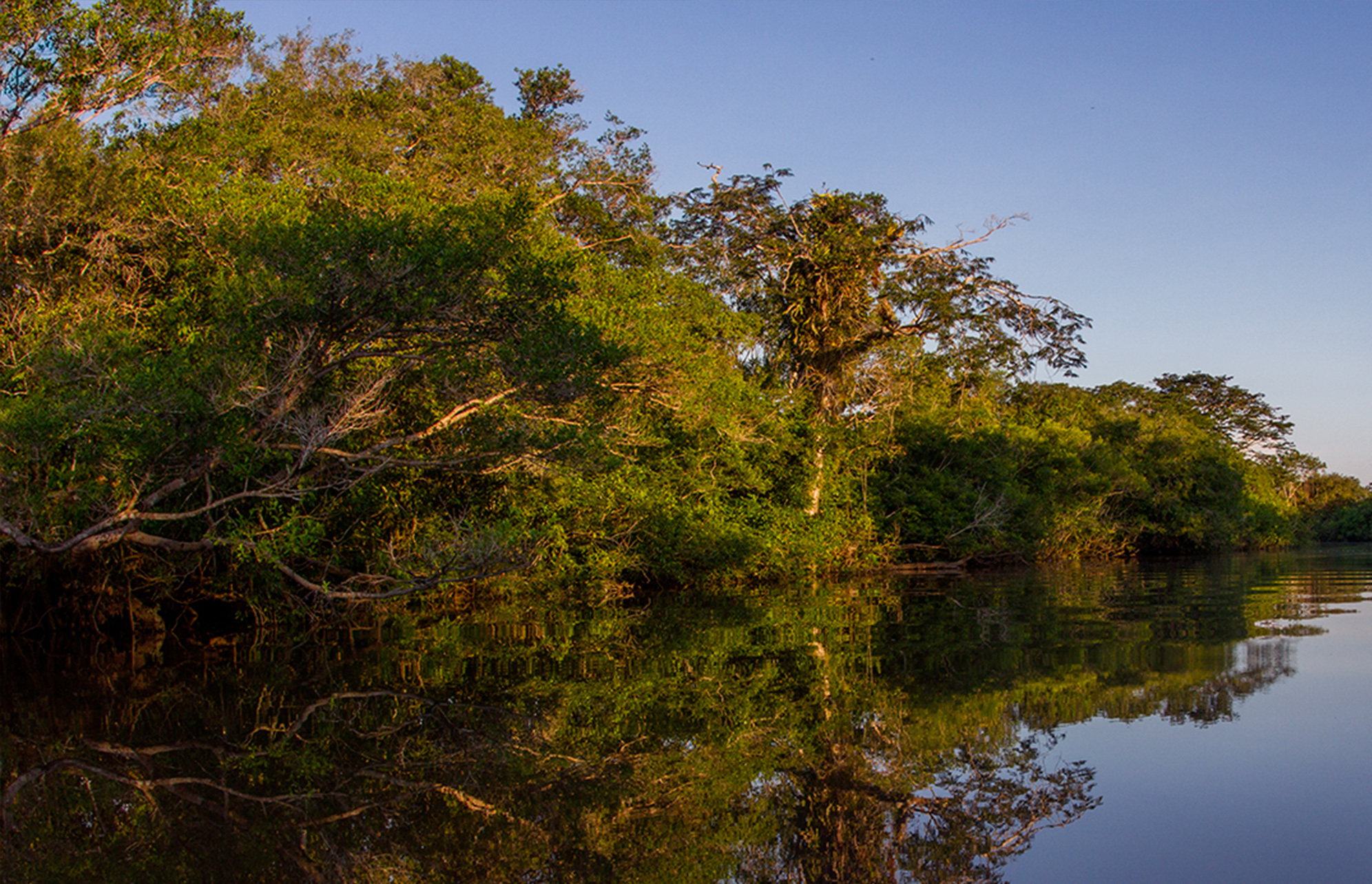According to María Yumbo, "there was a yachak in the community who controlled bad energies, but with old age people die and with time new people come out who have that spiritual power. Sometimes there isn't a yachaks, sometimes there is, they are people chosen by the jungle. Since childhood the jungle chooses the yachaks." Also, Mauricio Jipa says that "the yachak is the one who takes out the bad and brings the good energies, he is a good healer. The shaman is the one who does evil, for example, the bad wind. To be yachak a man must do a lot of diet, the forest chooses the man who is going to be healer or wise man. Sometimes we are born, sometimes we become."
Maria tells that "before, the grandparents’ main belief were the ceibos, the big trees, in the lagoons, in the swamps, the cascades, the Sun, the rain. Now it has changed and there is one belief, to be Catholic and evangelical. God is all-powerful, only by thinking of Him can we help ourselves. We cannot deny the spirituality of the forest, the forest can protect us. We believe that God gave us nature, nature is God”.
Another common practice in the community is to use chilli peppers to put in the eyes of disobedient newborns, children or young people. The application has its foundation: the possibility of teaching the newborn child to be brave and disobedient children not to commit certain faults again. Therefore its application should be made by the eldest of the community. Jiovanny Rivadeneira explains that this application is made by someone highly respected, because with this kind of "punishment" should come a council or kamachina, which explains the reason.
Guayusada is another activity linked to the spirituality of the community. The guayusa is an energizing drink, so if taken at dawn it can give energy for the whole day. This space is also used by the father to delegate the day's activities to the sons, while the mother directs her daughters on the activities of the woman that are usually carried out in the farm; dreams are also discussed and interpreted. Enma Cerda explains that "in each home we wake up at four in the morning to drink Guayusa tea, on working days, from Monday to Friday, to share dreams with the children, to teach the children how to live, to schedule the work for the day". However, nowadays this is a less common practice, it is the older adults or "rucus" who, already accustomed to this process, practice it frequently. Another characteristic of the guayusa is that when enough has been taken the snakes are not active, they do not get near the person.
Dreams play an important role in Amazonian Kichwa culture. Every dawn the spouses talk about their dreams to act on what they announce regarding daily or future activities. There are a number of taboos concerning dreams, so, if you dream of the boa, there will be no good hunting and you must not go to the river, for you may come across it. You cannot chase the dreamed animal, for it can bring misfortunes; if you dream of a hook, it means snake bite.
Maria tells that "before, the grandparents’ main belief were the ceibos, the big trees, in the lagoons, in the swamps, the cascades, the Sun, the rain. Now it has changed and there is one belief, to be Catholic and evangelical. God is all-powerful, only by thinking of Him can we help ourselves. We cannot deny the spirituality of the forest, the forest can protect us. We believe that God gave us nature, nature is God”.
Another common practice in the community is to use chilli peppers to put in the eyes of disobedient newborns, children or young people. The application has its foundation: the possibility of teaching the newborn child to be brave and disobedient children not to commit certain faults again. Therefore its application should be made by the eldest of the community. Jiovanny Rivadeneira explains that this application is made by someone highly respected, because with this kind of "punishment" should come a council or kamachina, which explains the reason.
Guayusada is another activity linked to the spirituality of the community. The guayusa is an energizing drink, so if taken at dawn it can give energy for the whole day. This space is also used by the father to delegate the day's activities to the sons, while the mother directs her daughters on the activities of the woman that are usually carried out in the farm; dreams are also discussed and interpreted. Enma Cerda explains that "in each home we wake up at four in the morning to drink Guayusa tea, on working days, from Monday to Friday, to share dreams with the children, to teach the children how to live, to schedule the work for the day". However, nowadays this is a less common practice, it is the older adults or "rucus" who, already accustomed to this process, practice it frequently. Another characteristic of the guayusa is that when enough has been taken the snakes are not active, they do not get near the person.
Dreams play an important role in Amazonian Kichwa culture. Every dawn the spouses talk about their dreams to act on what they announce regarding daily or future activities. There are a number of taboos concerning dreams, so, if you dream of the boa, there will be no good hunting and you must not go to the river, for you may come across it. You cannot chase the dreamed animal, for it can bring misfortunes; if you dream of a hook, it means snake bite.


